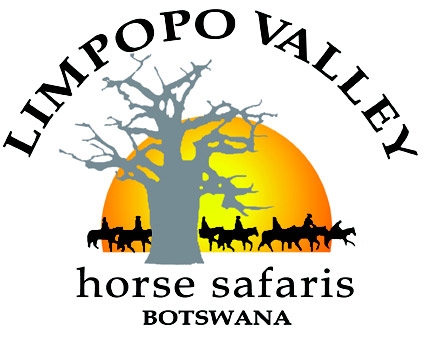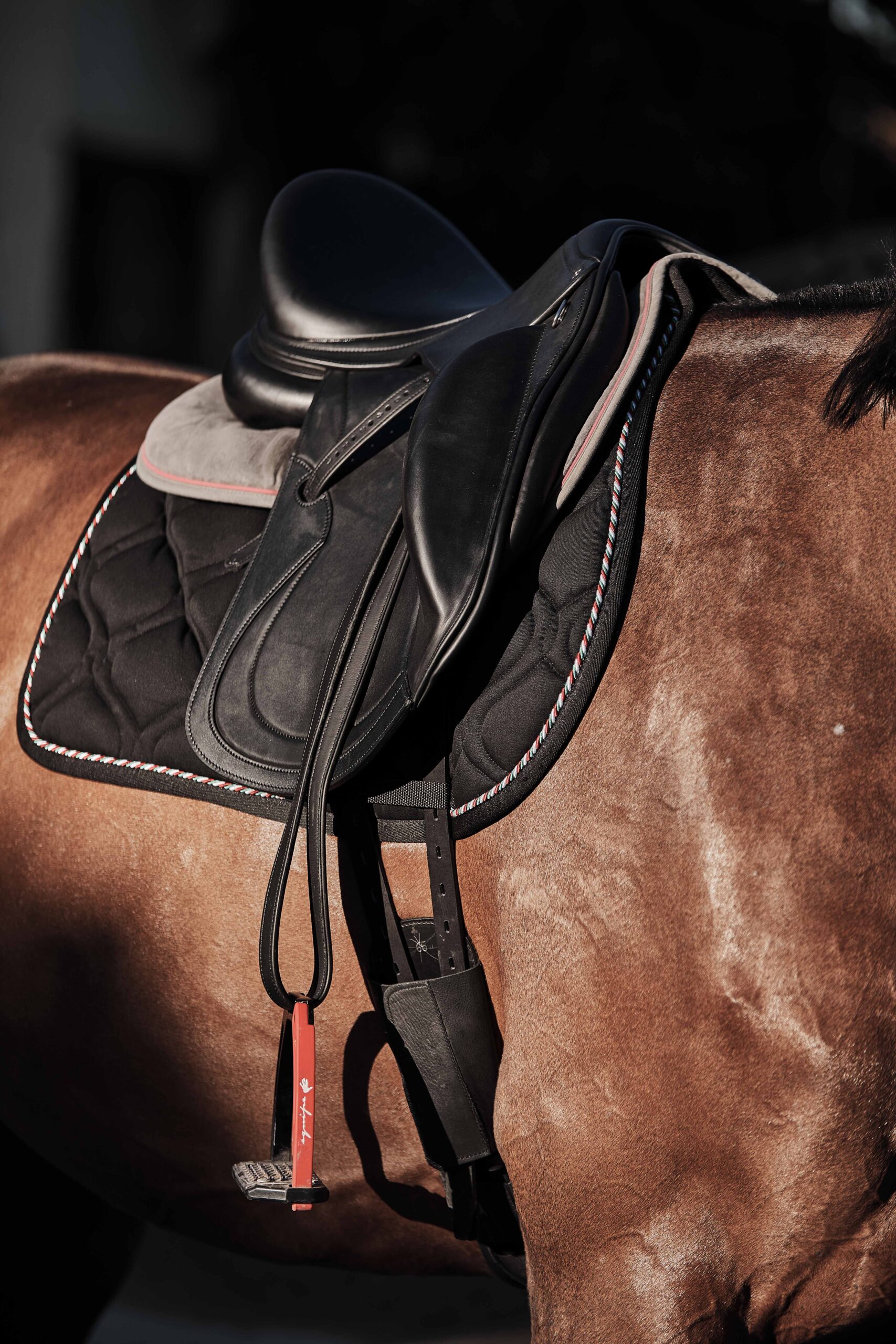Essential Information and FAQ’s answered
Horses: LVHS has a stable of 35 well cared for horses, with something to suit everyone including warmbloods, boerpherds and other cross breds.
Level of Riding Required: Guests must be experienced riders. They must ride regularly (at least once or twice a week) and be comfortable at a canter and gallop as well as being able to do small jumps should they have to. Our horses are mostly English schooled, so we highly recommend that Western riders have a course of lessons in English style prior to arrival.
Weight Limit: Maximum of 95 kgs or 210lbs or 15 stone.
Safety: All rides are conducted by two experienced professional guides; the lead guide is armed with a rifle and a bull whip. All management staff and guides do regular first aid training with a specialised Doctor for remote areas. The lead guide has a local phone and a satellite phone and a radio for use in emergencies.
Hard Hats: Are compulsory, please bring your own well fitting hard hat.
Tack: We have a selection of imported GP English saddles each equipped with saddle bags including water bottles. We have a limited amount of Australian stock saddles and South African Mclelans available for those who prefer.
Number of guests: Maximum of eight guests, minimum two guests.
Singles: Many of our guests are singles and we do not charge extra as long as they are willing to share a tent with a same sex person.
Rates are all-inclusive: riding, guiding, accommodation, meals, snacks, drinks and laundry. Gratuities and curio items are optional extras. Cash payments may be made in US Dollars, Euros, British Pounds or South African Rand.
Meals: Two highly trained experienced bush chefs will look after your every need. Breakfast is buffet of freshly baked muffins, cereals, toast, porridge. Lunch is a buffet usually quiches, salads, and fruit for dessert. Dinner is a 3 course meal served to you at the table, often under the canopy of stars! Vegetarians and other special diets are catered for.
Drinks: Drinks are inclusive of the price – a variety of soft drinks, beer, wines and spirits.
Other Activities: Afternoon game walks and once a week night game drives are also part of the itinerary. In addition to the game experience, Mashatu offers notable archaeological sites including the Mmagua Ruins.
Non Riders. We can accommodate riders at no extra charge, activities offered are walking, cycling, or game drives.
Children: We do not usually take children under the age of 16 years unless the child is a very strong rider and accompanied by parents.
What Clothes to Bring: All guests will be sent a clothing list prior to departure, important to bring are half chaps, jodhpur boots or run/ride boots and sun screen. We provide towels, water bottles and soaps.
Insurance: Whilst we carry public liability insurance and take all possible care, it is essential that you have full medical and holiday insurance to include riding horses. Your travel agent can arrange this if instructed. Guests will also be asked to sign an indemnity in camp before they ride.
Medical: A medical kit is taken on safari but we recommend you bring your own necessary items of a personal nature.
Malaria? The Tuli region of Botswana is a low-risk malaria area. Anti-malarial precautions should be taken in this area during the summer months of November through March. You should consult your doctor about this and any other medical precautions.
Charging batteries and Laundry. We have electricity at the stables, and can return batteries to be charged as well as laundry within 24 hours.
How to Get There: We recommend a road transfer from South Africa’s Johannesburg airport (OR Tambo International) to the Pont Drift Border Post of Botswana, a five to six hour trip each way .On arrival at Pont Drift Border Post a representative from Limpopo Valley Horse Safaris will transfer you overland to your camp.
Weather Conditions: Summer months are September to April, with October, November and February being the hottest months. Temperatures vary from 12 degrees C to 38 degrees C at midday. The rainy season falls between November and March. Winter is May to the end of August, a period of very little rain, and delightful temperatures by day and refreshingly cool at night. Temperatures during winter months vary from 4 degrees C to 24 degrees C at midday.
Visas and Vaccinations. In South Africa and Botswana you will be given an entry visa at the border valid for your length of stay at no cost. Please check with your doctor for the necessary vaccinations before coming out although there are no specific requirements for either South Africa or Botswana.
Water. All water in the camps is filtered to the highest standards and is guaranteed perfectly safe for drinking.
Game Viewing: The Northern Tuli Game Reserve, an area of history and legend, offers some of the most exciting game viewing in Africa. It is still home to large herds of elephant, prides of lion ,cheetah and wild dogs. Along the river courses, huge riverine trees provide shade for eland, impala, wildebeest, giraffe and zebra, whilst at night, the bat eared fox, African wildcat and the magnificent leopard search for prey. Some 350 species of birds may be seen. The Northern Tuli Game Reserve proudly provides a refuge for one of the largest, single population of elephant on conservation land in Africa. Known as the relic herds of Shashe, these elephants are the last living testament to the great herds that once populated the meandering Limpopo Valley. Today, the population is estimated to number in excess of 1400 animals.
Terrain: The Northern Tuli Game Reserve(about 120,000 hectares), an area of history and legend, offers some of the most exciting game viewing in Africa, and is located in the remote north eastern corner of Botswana, at the confluence of the Limpopo and Shashe Rivers, an area known historically as the Tuli enclave, a diverse wilderness of savannah, riverine forests, marshland, open plains and sandstone outcrops. The terrain comprises a network of dry riverbeds, rocky sandstone outcrops and high ridges with views that stretch for endless miles across Africa’s interminable game rich plains. It is a place of exceptional beauty, and one ideally suited for exploration from the back of a horse.
Accommodation:
Two Mashatus Camp. Nestled in the shade of a centurion Mashatu tree, two traditionally built Lala palm rondavels serve as dining area and lounge. Accommodation is in big A frame walk-in tents pitched on teak platforms, with en-suite enviro loo and running hot water shower and hand basin. Each tent is private and positioned in the shade of a tree with a small deck area on which to relax during the afternoons.
Wilderness/Satellite Camps. Three differentSatellite campsites are set up in specific locations throughout the Mashatu Reserve. Accommodation is in A frame tents on comfortable beds with sheets and duvets. Facilities include a bucket shower and “bush-WC”. Meals are cooked over a camp fire.
The Kgotla. The Kgotla is used on the Tuli trail and is an old tribal court from a nearby community that was relocated to the banks of the Motloutse River on the western periphery of Mashatu. The boma is an open-air traditional African enclosure made up of leadwood logs. Guests sleep on beds around a large log fire which blazes at the centre, toilets and showers have hot running water
The Lodges. Used on our Limpopo lodge ride only… Naledi is a thatched cottages set up on the hills on the northern part of Mashatu. Very comfy with fun outdoor showers and a nice swimming pool to relax by. Kanda is comprised of 4 rustic chalets in a stunning location overlooking the Majale river. Limpopo House is a big colonial house with 4 rooms for guests, a beautiful garden with pool and all overlooking the Limpopo river on nearby Charter reserve. Sentata is a lovely setup with white painted thatched cottages also with pool and close to the Limpopo river, on Charter.
Please contact us if you need more info: info@lvhsafaris.co.za or louise@lvhsafaris.co.za


